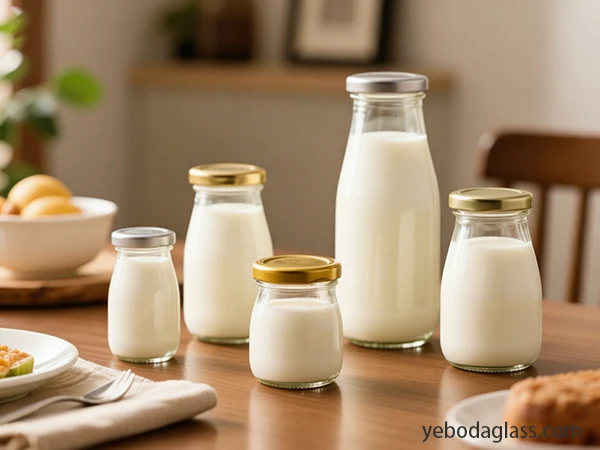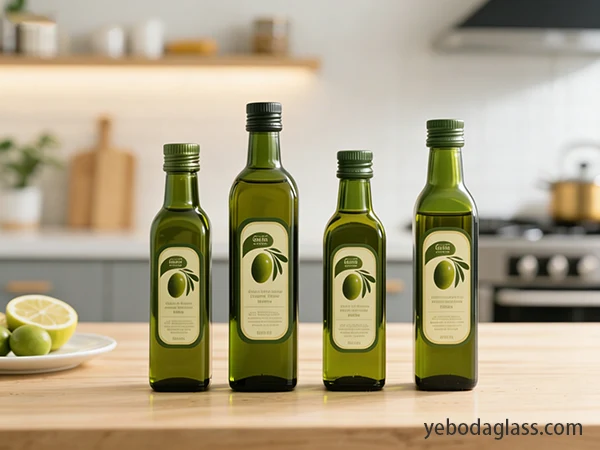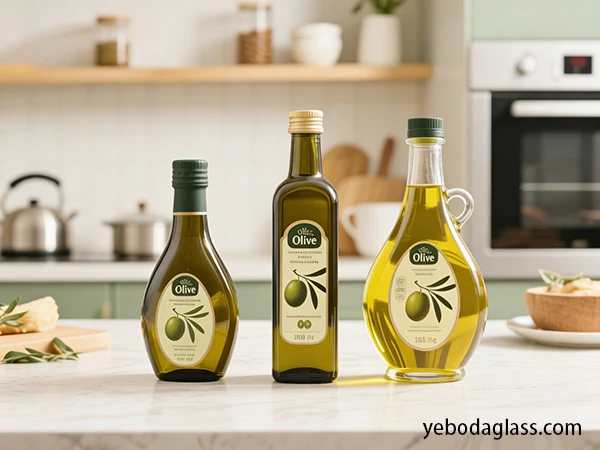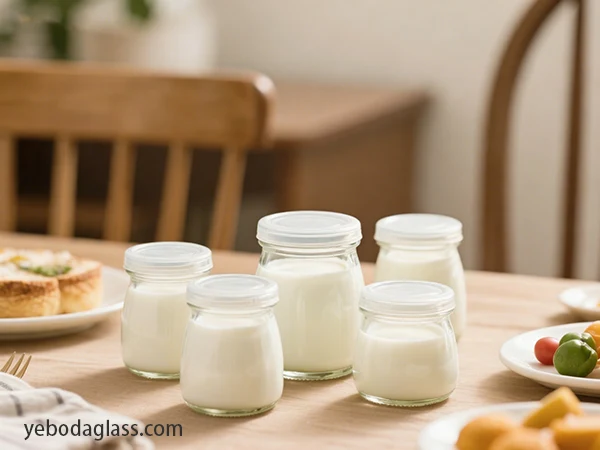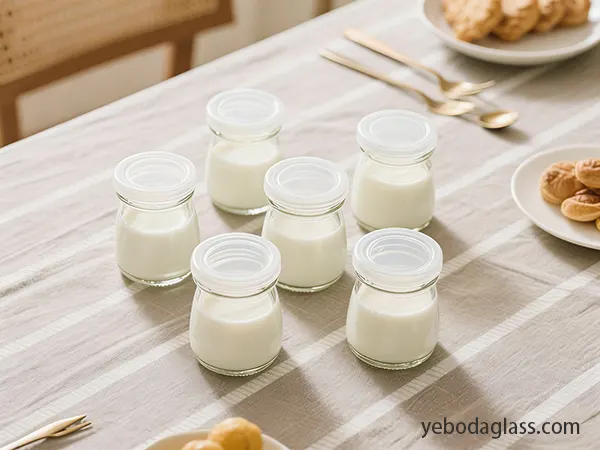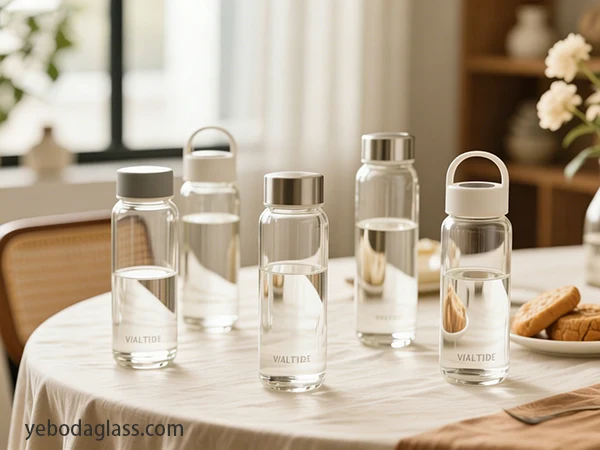Report Objective and Project Scope
Objective
An in-depth report intended to present a detailed strategic analysis concerning the purchasing and manufacturing of large-volume glass mason jars. The analysis offers operational insights to the stakeholders by which they can judge jar manufacturers, pick the best production methods, and improve the supply chain at the company level. The primary objective is to set up a durable partnership with a mason jar manufacturer which entails quality, reasonable pricing, and eco-friendliness. In this respect, Yeboda appears as a dependable manufacturer — providing cutting-edge molding technology, uniform product accuracy, international food-grade certifications, and eco-friendly practices.operations. Its proven track record in large-scale production ensures both flexibility and stability for international buyers.
Project Scope
This project explores the full life cycle of glass jar production, from raw material science to advanced forming methods, sourcing strategies, and quality control. It also evaluates potential suppliers and production regions capable of meeting industrial-scale demand. The resulting framework outlines a procurement roadmap for scalable growth, standard consistency, and compliance with international food packaging regulations.

Product Specification and Design Requirements
Intended Primary Application
While traditionally used for home canning, industrial use of Mason jars have grown significantly. Defining product parameters largely depends on knowing the use. The main uses are:
- Food Preservation — which requires the glass to resist thermal shocks, keep vacuum seals, and be made of food-grade materials.
- Beverage Containers — which require a high level of clarity and specific mouth finishing to attract consumers.
- Storage Solutions — their main features being durability and simple functionality.
- Candle and Decor Applications — where an absolute focus on heat resistance, design, plus glass finish, is expected.
The user application is the one that sets the best standards a mason jar manufacturer must meet regarding glass makeup, lid, and finishing.
Standard vs. Custom Designs
Deciding on standard or custom designs depends on one’s brand identity, the amount set aside for tooling, and the time needed to get the product to market:
- Standard Designs — Are budget-friendly, as they make use of ready-made molds and are produced in standard volumes (e.g., 8 oz, 16 oz, 32 oz).
- Custom Designs — Serve perfectly for brand uniqueness giving the option of changing the shape, color, and embossing of a product.
If not done fully, at least a skilled glass mason jar producer is in a position to offer two choices, one efficient and the other creative.
Branding and Aesthetic Requirements
One of the ways to make a brand more visible is by embossing and labeling or printing directly on glass jars. Apart from color, like amber or cobalt blue glass, which besides looking good also protect the product from UV rays, can make the brand more attractive. Besides, a mason jar manufacturer that is capable of in-house decoration can make the whole process faster and less dependent on secondary suppliers.
Material and Safety Specifications
The basis of every quality jar is good material. Most of the glass mason jars on the market today are made from soda-lime glass which is a mix of silica, soda ash, and limestone. A glass mason jar manufacturer of high quality is one that makes sure the glass is not only lead-free but also tough and meets FDA or EU standards.
The lid systems normally are:
- Two-piece lids together with plastisol sealants to keep the storage airtight.
- Continuous thread (CT) lids, most of the time metal or BPA-free plastic.
Alternatively, if the lid is provided with a gasket or silicone seal, this should be for better airtightness.
Mason Jar Manufacturer‘s Process and Technology
Raw Material Preparation
Each mason jar producer starts by refining their raw materials with extreme precision. The raw materials used in the glass batch are silica sand, soda ash, limestone, feldspar, and cullet (recycled glass). Cullet is very important in the process of reducing the energy consumption and making the process more environmentally friendly – a significant factor separating eco-friendly glass mason jar producers from the rest.
Melting and Conditioning
These materials are being liquefied in large tank furnaces that operate at over 1500°C into one uniform molten glass. The glass is heated in a forehearth to achieve the exact forming temperature. The output and the clarity of the final glass jars largely depend on how well the furnace is working, the temperature control, and the homogeneity of the glass.
Glass Forming Using IS Machines
Present-day mason jar producers employ Individual Section (IS) machines that utilize two primary processes to fabricate a major part of the jars per minute:
- Blow-and-Blow for narrow-neck containers.
- Press-and-Blow for wide-mouth glass mason jars which provides better control of the wall thickness.
Such processes allow for the standard shape and the same quality to be achieved for each batch of production.
Annealing Process
The annealing process takes place in a specially designed lehr oven that is used to eliminate the stress inside glass. Right annealing makes the glass less likely to break and the glass becomes more impact and heat resistant – very important properties of glass jars that are to be used in the food and drinks supply chain.
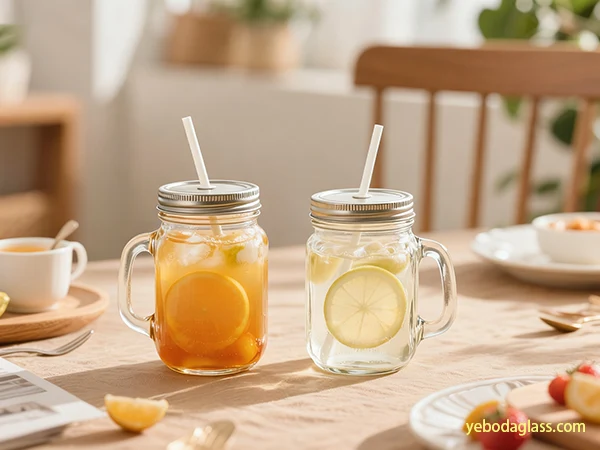
Automated Quality Inspection
The automated inspection systems include vision cameras and laser sensors that are able to detect the errors in dimensions, the bubbles, and the cracks. The defect rates of leading mason jar manufacturers are far below the industry standards which is possible due to the automated rejection and cullet recycling systems that they are supported by.
Surface Treatment and Packaging
To enhance the lifespan of the glass mason jars, they are coated with a material that makes them resistant to scratches and then they are packed in cartons, trays, or pallets. The packaging is designed based on the factors such as the distance over which the goods are to be transported as well as the stacking requirements, that is, how much space will be taken up when the packages are stacked on each other, especially in case of bulk orders.
Bulk Production Strategy and Volume Optimization
Manufacturing Capacity
Scalability is a critical selection criterion when choosing a mason jar manufacturer. High-capacity plants typically feature:
- Multiple IS machines with parallel operation.
- Dedicated lines for popular jar types.
- Ability to scale production during seasonal demand peaks.
Economies of Scale
The cost efficiency of glass mason jar manufacturing arises from distributing fixed costs (energy, machinery, molds) over large production volumes. Bulk production also allows for:
- Better raw material pricing.
- Optimized labor allocation.
- Faster tooling amortization for custom designs.
Cost Structure Components
Key cost elements include:
- Raw materials and energy — primary cost drivers.
- Labor and maintenance — influenced by automation levels.
- Packaging and logistics — dependent on shipment mode and distance.
A transparent cost breakdown allows effective negotiation with each mason jar manufacturer.
Efficiency and Sustainability Integration
Sustainability is an absolute must for any wholesale production. Besides appealing to the environmentally conscious buyers, increasing the cullet ratio, using energy efficient furnaces, and adopting closed-loop water systems can significantly improve the operational efficiency of production.
Geographic Sourcing and Supplier Evaluation
Regional Manufacturing Analysis
Where to make glass mason jars? The answer to this question depends on the following main production regions of the global glass mason jar manufacturers:
- Asia (China, India) – cheap and mass production.
- Europe (Germany, Italy) – precision and less pollution.
- North America (USA, Mexico) – faster delivery and “Made in USA” value.
- Emerging Markets (Turkey, Vietnam) – cheaper and with growing infrastructure.
What you really source region entails you cost/logistics/quality expectations.
Supplier Evaluation Criteria
To find the most appropriate mason jar manufacturer, one should consider the following points:
- Manufacturing Technology — usage of cutting-edge IS machines.
- Capacity & Flexibility — the firm’s ability to deliver volume targets yearly.
- Customization Capabilities — capability and experience of the company in mold designing and embossing.
- Quality Control Systems — practice of ISO 9001 and FDA standards by the company.
- Sustainability & Labor Ethics — compliance with ISO 14001, ethical sourcing, and fair labor standards by the company.
- Logistics and Risk Management — proficiency in export administration and handling unforeseen situations by the company.
Quality Assurance, Certifications, and Compliance
Quality Control Framework
Every dependable mason jar manufacturer must have total quality assurance tightly integrated into their product lifecycle. This should cover:
- Raw Material Verification — purity and consistency of sand, soda ash, and cullet should be checked lead to assured quality of end-products.
- In-Process Controls — furnace parameters and gob weights should be closely monitored during production process.
- Automated Optical Inspection — identifying very small defects in glass bottles and jars.
- Physical Testing — the methods used to verify the thermal shock resistance, impact strength, and top-load capacity of glass jars.
- Seal Integrity — the process through which leak testing of glass mason jars with lids is performed.
International markets demand such stringent systems as these to set apart quality glass mason jar manufacturers.
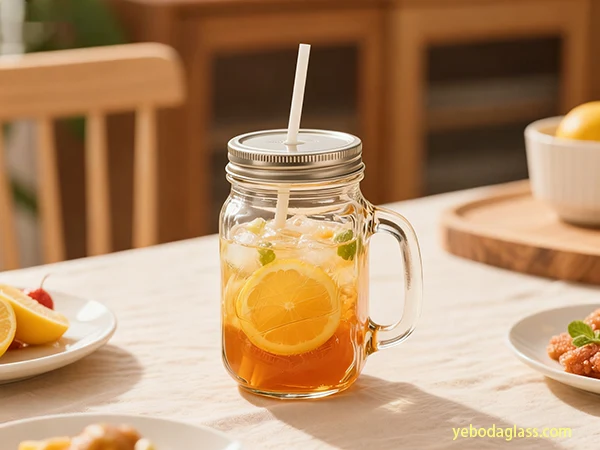
Certifications and Regulatory Compliance
Key certifications and regulatory frameworks that should be met by a professional mason jar manufacturer are:
- ISO 9001 – Quality management.
- ISO 14001 – Environmental responsibility.
- FDA & EU Food-Contact Compliance – Materials should be neutral and free of lead.
- LFGB & BPA-Free – An absolute must for food storage and beverage jars.
- Traceability Systems – For batch identification and recall safety.
Such manufacturers who raise to these standards are a good bet and will be around for a long time as partners in the global market.
Long-Term Collaboration Strategy
Partnership with Mason Can Manufacturers
Long-term partnerships with suppliers of flip top bottles should not be a mere transactional exchange. The establishment of consistent communication, transparent pricing structures, and joint product development efforts can ensure that both parties are aligned with shared goals such as innovation, quality, and sustainability. Practical suppliers like Minghang can offer technical support and anticipate inventory needs to prevent shortages and ensure smooth production.
Continuous Improvement and Quality Assurance
Quality management should be seen as a continuous endeavor and not just a one-time event or audit. Companies ought to engage in the regular evaluation of suppliers, inspection of sites, and reviews of material traceability. By providing funds for supplier training and using a common digital quality platform, companies ensure that the production of flip top bottles is always up to international standards and meets customer expectations.
Risk Management in Supply Chain
Identifying Supply Chain Vulnerabilities
Companies that employ global sourcing must be aware that they are vulnerable to certain risks including variation in raw material prices, delays in shipping, and disruptions caused by geopolitics. Recognizing such possibilities at the outset gives the companies a chance to implement risk mitigation strategies such as diversifying sourcing regions, keeping safety stock, and negotiating for flexible delivery terms with flip top bottle manufacturers.
Sustainable and Ethical Supply Practices
A comprehensive risk management plan that is well thought out will not fail to take into account the aspect of sustainability. Making the choice of suppliers that are certified with ISO 14001, have efficient waste management, and whose products incorporate recycled glass is a win-win situation for the brand as well as for the regulator. The environmental aspect of sustainability has become a decisive factor for suppliers in the glass packaging industry.
Technology and Innovation
Automation and Smart Manufacturing
One of the examples of technological advancement in the glass industry is how various processes are done with the use of technology which leads to improved accuracy and speed such as efficient metal melting, quality checks done through the use of AI, and automatic product assembly. Suppliers who provide flip top bottles and are ready to go with Industry 4.0 technologies can achieve better product consistency in a shorter time plus lower defect rates, which is good for the holders of large MRO accounts in the long run.
Product Design and Branding Integration
Innovations in the product field as well as branding are the company’s strengths. The aps of creating the new uses of flip top closures like logos that are puffed or light glass for buyers to have the freedom to distinguish their brands in the saturated markets is the great idea of cooperation. The partnership with an advanced flip top bottle factory like Minghang will allow brands to combine their technical feasibility with their creative identity.
Financial and Strategic Outlook
Long-Term Cost Efficiency
One of the main results of long-term procurement contracts with dependable suppliers of flip-top bottles is that the pricing is predictable, and the margins are stable. Multiple advantages such as placing large orders, transporting goods fewer times, and negotiating freight better all lead to financial efficiency. The TCO is being lowered gradually by such partnerships, while quality remains at the same level of consistency.
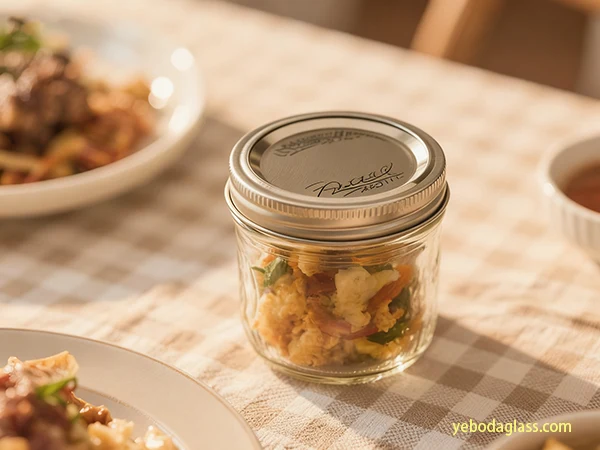
Strategic Outlook and Conclusion
The demand for glass packaging that is not only of high quality but also environmentally friendly is going up steadily across the globe. Those brands that will be able to secure long-term relationships with reliable suppliers such as Minghang will be left with the following benefits: quality consistency, market adaptability, and environmental compliance. To sum up, strategic sourcing and collaborative innovation with a trusted flip top bottle supplier not only lead to higher profits but also contribute to brand resilience and sustainable growth in a competitive B2B marketplace.

